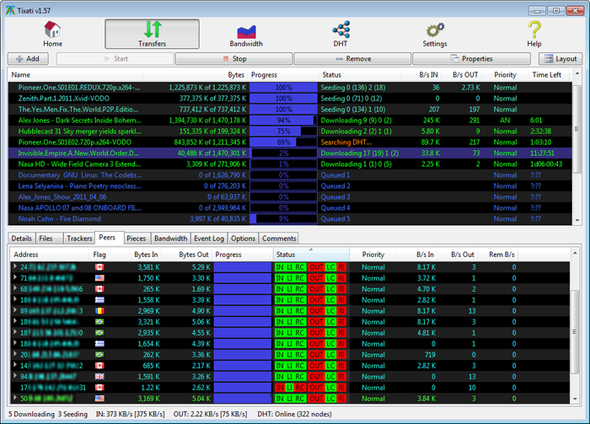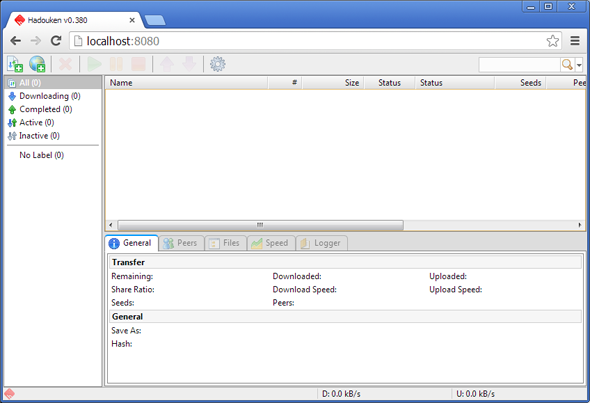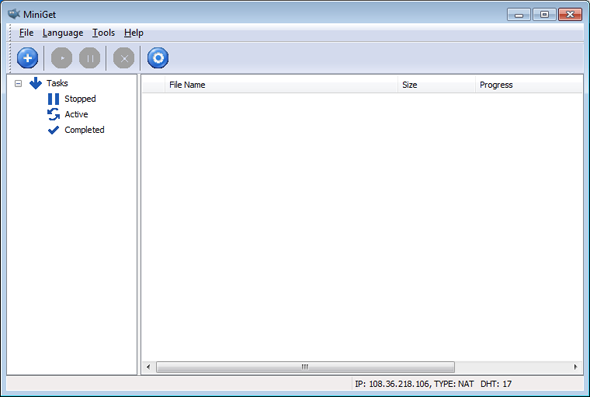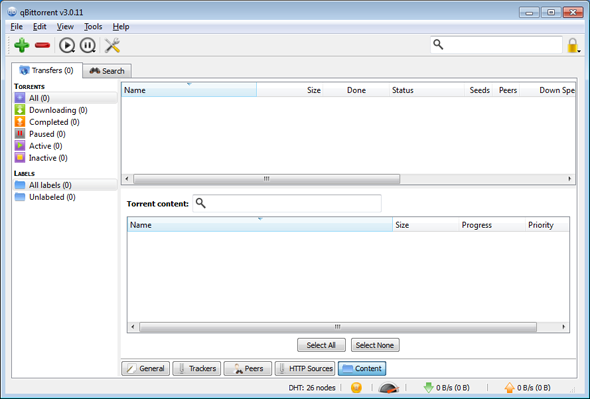Guns don’t share illegal files. People share illegal files. Or, wait, how does it go again? What I mean to say is, BitTorrent has a bad reputation for its piracy potential, but it shouldn't. BitTorrent is a tool that allows people to share and receive files with other people and there are legal uses for BitTorrent unrelated to downloading illegal files.
Torrenting is so popular that there are dozens of great clients out there, but many of them are packed with bloat and extra features that the average user will never use. What if you want a clean, simple, and easy client instead?
Sometimes you want to pop open your torrenting client and download a range of items as soon as possible. Maybe you want to do this on an old computer that rattles and whines with every spin of the hard drive. Maybe you just don’t care for all the bells and whistles. A lightweight BitTorrent client is exactly what you’re looking for, and thankfully there are several good ones from which you can choose. Here are the ones I’d recommend.
Note: If you’re a complete newbie to the concept of torrenting, fear not. We have a fantastic beginner’s guide to BitTorrent written by our very own Saikat and it’ll get you started off on the right foot.
Tixati [Windows, Linux]
As of right now, Tixati is my BitTorrent client of choice. I’ll admit that it’s not the most beautiful client around - frankly speaking, it’s actually quite ugly - but it certainly gets the job done without hogging too many resources. Just look at the screenshot above and you’ll get a sense of what Tixati is all about: sharing files! You’ll find no built-in media managers, social networking, or web browsing here.
With regard to performance, I’m impressed. I don’t know if it’s all in my head or what, but my own experience is that Tixati’s speeds are faster than other competitive torrenting clients. When prioritizing files, they do indeed download much faster than files with low priority. Perhaps it has something to do with Tixati’s special algorithms for efficient peer selection. And best of all? No spyware, no malware, and built-in encryption for improved security.
Hadouken [Windows]
Hadouken is one of the more recent creations in the realm of BitTorrent clients. The thing that separates Hadouken from pretty much every other client is that it runs as a headless Windows service, meaning that it doesn’t have an actual program interface that shows up in the taskbar or the system tray. In fact, the only way to use Hadouken is to install it, then interact using its Web-based interface.
The cool thing is that the Web-based interface is actually based on uTorrent’s Web UI, which means Hadouken’s interface will be familiar to a lot of you. On top of that, Hadouken has a powerful plugin system that can be used to implement a whole slew of features - sending emails, unpacking files, mounting images, etc. - at your whim.
Once Hadouken is installed, you need to go to your browser and type in the following to access the Web-based interface:
URL: http://localhost:8080
Username: hdkn
Password: hdkn
MiniGet [Windows]
At first glance, MiniGet doesn’t look like anything spectacular. There’s no real eye candy and it looks about as barebones as it gets when it comes to torrenting clients. Well, that’s what we’re looking for, right? Like its name implies, MiniGet is all about being as small as possible while still providing power and efficiency in file sharing, and it accomplishes this by throwing out ALL features that aren’t absolutely essential.
MiniGet can handle the HTTP, FTP, and BitTorrent protocols. It can handle Magnet links, DHT, web seeds, as well as NAT traversals (also known as NAT punchthrough). And, of course, it can pause and resume downloads. Those are the core features deemed necessary by MiniGet. You won’t find much more, but at least it results in a tiny CPU and RAM footprint.
qBittorrent [Windows, Mac, Linux]
Ever since µTorrent sold out and went down the drain, qBittorrent was considered to be its replacement. There are a lot of similarities between the two, namely that they’re both simple, straightforward, and lightweight (this is before µTorrent began to bloat up). This is no surprise since the creator of qBittorrent originally intended qBittorrent to be the µTorrent for Linux as there were no good alternatives at the time.
qBittorrent handles all of the core features you’d expect in a torrenting client - encryption, priorities, IPv6, etc. - as well as some neat advanced options, such as sequential downloading and remote control of the client through a Web-based interface. All this comes wrapped up in a package that’s lightweight and easy on the resources, which is why qBittorrent remains as one of the best torrenting clients ever.
Conclusion
Sometimes you need a big all-in-one torrenting solution, and there are plenty of options out there if that’s the case, but when you need little more than the core functionality of a client, the ones listed here will serve you well if you ask me. And if none of these fulfill your torrenting needs, you could always check out these lesser-known but still effective BitTorrent clients.
Which BitTorrent clients do you use when you want something lightweight and easy on the resources? Are there any that I missed? Please share them with us in the comments!
Image Credits: Feather Via Flickr





